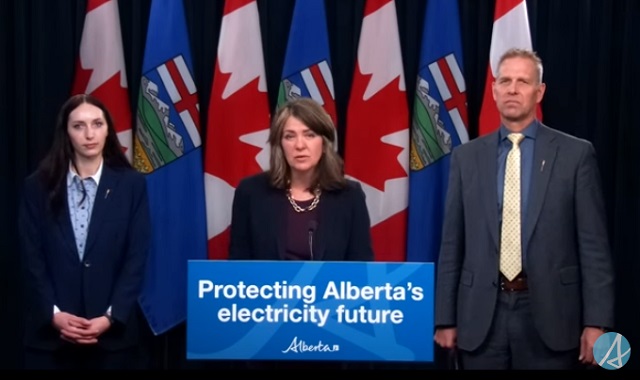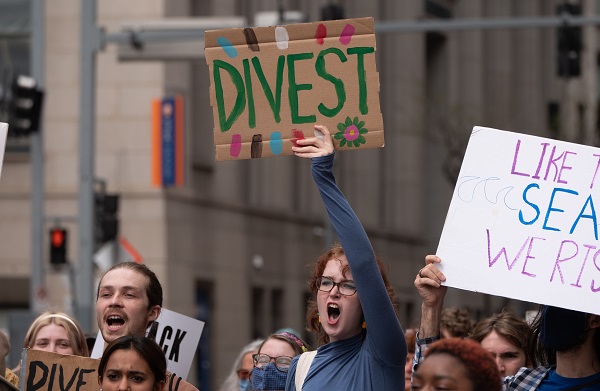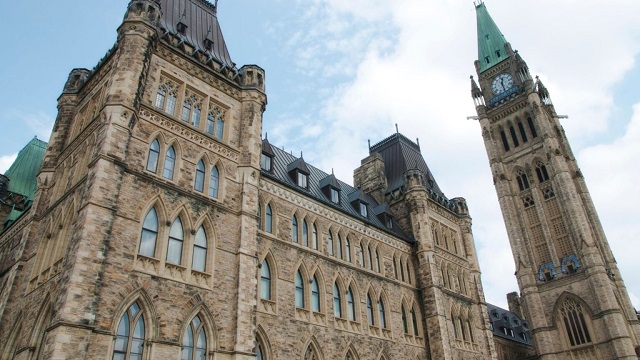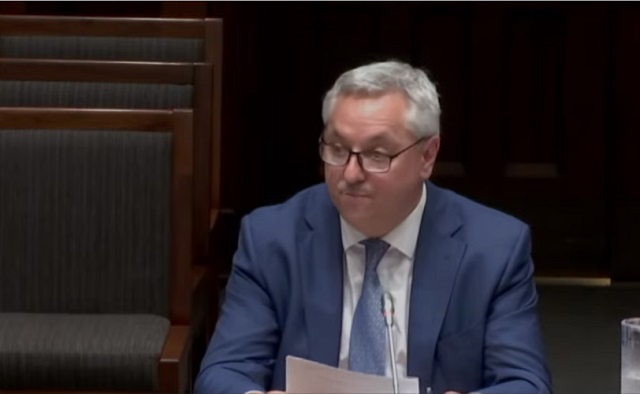Business
A Response To: An Open Letter To Canadians From Oil And Gas Workers

Update – April 13th 2020: View Eavor Technologies CEO – John Redfern’s response here
![]()
A letter in response to this:
https://business.financialpost.com/opinion/an-open-letter-to-canadians-from-oil-and-gas-workers
Dear Albertan oil executives,
Canada’s oil and gas workers need your help. For decades, we have been asking you to diversify our economy and look for ways to avoid the boom and bust cycle. We are now in a perfect storm with oil prices falling and workers in isolation from a deadly virus. We need your leadership more than ever.
Unfortunately for us, you’ve chosen the least imaginative path possible: stay the course. In your April 6th Op-Ed in the Financial Post, you argued that the fossil fuel industry needs federal support in order to maintain a skilled workforce. For a province that prides itself on hard work and innovation, don’t you think we can do better?
The underlying assumption that you have made is that oil prices will return to a level that’s profitable for Alberta. But the historical trend doesn’t support your argument.
When you look at the historical price of WTI, Alberta’s golden years came from a bubble. In 2008 analysts all over the province were claiming oil would climb to $200 and Alberta would become the crown jewel of Canada. That turned out to be wishful thinking. You have dusted off that same playbook, claiming that oil will keep going up in price. The more likely scenario is that prices will return to their historical average.
We cannot rely on high oil prices for our economic survival.

(The picture was taken from https://tradingeconomics.com/commodity/crude-oil But any 30-year graph will do. )
I agree with you that we need to ensure that we can maintain our workforce. It’s essential that Alberta has skilled people working in our province so that we can develop our resources. Canada as a whole needs to maintain our skilled labour force and keep our economy functioning so that we can rebound once the pandemic is over. But putting those 200,000 people back to work into fossil fuels is a terrible idea.
So what do we do with hundreds of thousands of unemployed people and billions of dollars of idle equipment?
My suggestion is we find markets outside of oil and gas that require very similar skill sets. We leverage our existing infrastructure, supply chains, and experience to build new industries here in Alberta.
I’ve got three examples.
Geothermal Energy
Geothermal energy needs the same drilling rigs that the oil service industry has sitting idle. You can use your existing geologists, roughnecks, pipefitters, and welders to drill geothermal wells instead of oil wells. The end result is clean baseload power that can replace coal in this province and all over the world. The added benefit of developing geothermal is that we repurpose orphan wells into sources of heat and electricity. Companies like Eavor and DEEP have already started.
Battery Manufacturing
As we move to cleaner energy sources, batteries will become more important to the sustainability of our economy. Batteries need a lot of material to be manufactured and companies like E3 Metals are developing extraction techniques to create a lithium industry here in Alberta. There are plenty of technicians, engineers, and fabricators in our energy community that are entirely capable of working on projects like this.
Nuclear Power
While we are brainstorming ideas, let’s think big. If we are serious about providing clean, low carbon, environmentally friendly energy we have to look at nuclear. The folks at Terrestial Energy have designed a modular reactor that’s small, safe, and could absolutely be manufactured here in Alberta. I bet the mod yards would be jumping at the chance to have a backlog of work.
I agree with you that we absolutely need to support our workforce. However, I don’t think keeping our oil industry limping along can be the full answer for our skilled and versatile workforce. Our talented population needs options.
Please stop looking in the rearview mirror and start building for the future.
![]()
Update – April 13th 2020: View Eavor Technologies CEO – John Redfern’s response here
![]()
This article was originally published on April 8, 2020.
Alberta
Alberta government should create flat 8% personal and business income tax rate in Alberta

From the Fraser Institute
By Tegan Hill
If the Smith government reversed the 2015 personal income tax rate increases and instituted a flat 8 per cent tax rate, it would help restore Alberta’s position as one of the lowest tax jurisdictions in North America
Over the past decade, Alberta has gone from one of the most competitive tax jurisdictions in North America to one of the least competitive. And while the Smith government has promised to create a new 8 per cent tax bracket on personal income below $60,000, it simply isn’t enough to restore Alberta’s tax competitiveness. Instead, the government should institute a flat 8 per cent personal and business income tax rate.
Back in 2014, Alberta had a single 10 per cent personal and business income tax rate. As a result, it had the lowest top combined (federal and provincial/state) personal income tax rate and business income tax rate in North America. This was a powerful advantage that made Alberta an attractive place to start a business, work and invest.
In 2015, however, the provincial NDP government replaced the single personal income tax rate of 10 percent with a five-bracket system including a top rate of 15 per cent, so today Alberta has the 10th-highest personal income tax rate in North America. The government also increased Alberta’s 10 per cent business income tax rate to 12 per cent (although in 2019 the Kenney government began reducing the rate to today’s 8 per cent).
If the Smith government reversed the 2015 personal income tax rate increases and instituted a flat 8 per cent tax rate, it would help restore Alberta’s position as one of the lowest tax jurisdictions in North America, all while saving Alberta taxpayers $1,573 (on average) annually.
And a truly integrated flat tax system would not only apply a uniform tax 8 per cent rate to all sources of income (including personal and business), it would eliminate tax credits, deductions and exemptions, which reduce the cost of investments in certain areas, increasing the relative cost of investment in others. As a result, resources may go to areas where they are not most productive, leading to a less efficient allocation of resources than if these tax incentives did not exist.
Put differently, tax incentives can artificially change the relative attractiveness of goods and services leading to sub-optimal allocation. A flat tax system would not only improve tax efficiency by reducing these tax-based economic distortions, it would also reduce administration costs (expenses incurred by governments due to tax collection and enforcement regulations) and compliance costs (expenses incurred by individuals and businesses to comply with tax regulations).
Finally, a flat tax system would also help avoid negative incentives that come with a progressive marginal tax system. Currently, Albertans are taxed at higher rates as their income increases, which can discourage additional work, savings and investment. A flat tax system would maintain “progressivity” as the proportion of taxes paid would still increase with income, but minimize the disincentive to work more and earn more (increasing savings and investment) because Albertans would face the same tax rate regardless of how their income increases. In sum, flat tax systems encourage stronger economic growth, higher tax revenues and a more robust economy.
To stimulate strong economic growth and leave more money in the pockets of Albertans, the Smith government should go beyond its current commitment to create a new tax bracket on income under $60,000 and institute a flat 8 per cent personal and business income tax rate.
Author:
Business
Maxime Bernier warns Canadians of Trudeau’s plan to implement WEF global tax regime

From LifeSiteNews
If ‘the idea of a global corporate tax becomes normalized, we may eventually see other agreements to impose other taxes, on carbon, airfare, or who knows what.’
People’s Party of Canada leader Maxime Bernier has warned that the Liberal government’s push for World Economic Forum (WEF) “Global Tax” scheme should concern Canadians.
According to Canada’s 2024 Budget, Prime Minister Justin Trudeau is working to pass the WEF’s Global Minimum Tax Act which will mandate that multinational companies pay a minimum tax rate of 15 percent.
“Canadians should be very concerned, for several reasons,” People’s Party leader Maxime Bernier told LifeSiteNews, in response to the proposal.
“First, the WEF is a globalist institution that actively campaigns for the establishment of a world government and for the adoption of socialist, authoritarian, and reactionary anti-growth policies across the world,” he explained. “Any proposal they make is very likely not in the interest of Canadians.”
“Second, this minimum tax on multinationals is a way to insidiously build support for a global harmonized tax regime that will lower tax competition between countries, and therefore ensure that taxes can stay higher everywhere,” he continued.
“Canada reaffirms its commitment to Pillar One and will continue to work diligently to finalize a multilateral treaty and bring the new system into effect as soon as a critical mass of countries is willing,” the budget stated.
“However, in view of consecutive delays internationally in implementing the multilateral treaty, Canada cannot continue to wait before taking action,” it continued.
The Trudeau government also announced it would be implementing “Pillar Two,” which aims to establish a global minimum corporate tax rate.
“Pillar Two of the plan is a global minimum tax regime to ensure that large multinational corporations are subject to a minimum effective tax rate of 15 per cent on their profits wherever they do business,” the Liberals explained.
“The federal government is moving ahead with legislation to implement the regime in Canada, following consultations last summer on draft legislative proposals for the new Global Minimum Tax Act,” it continued.
According to the budget, Trudeau promised to introduce the new legislation in Parliament soon.
The global tax was first proposed by Secretary-General of Amnesty International at the WEF meeting in Davos this January.
“Let’s start taxing carbon…[but] not just carbon tax,” the head of Amnesty International, Agnes Callamard, said during a panel discussion.
According to the WEF, the tax, proposed by the Organization for Economic Co-operation and Development (OECD), “imposes a minimum effective rate of 15% on corporate profits.”
Following the meeting, 140 countries, including Canada, pledged to impose the tax.
While a tax on large corporations does not necessarily sound unethical, implementing a global tax appears to be just the first step in the WEF’s globalization plan by undermining the sovereignty of nations.
While Bernier explained that multinationals should pay taxes, he argued it is the role of each country to determine what those taxes are.
“The logic of pressuring countries with low taxes to raise them is that it lessens fiscal competition and makes it then less costly and easier for countries with higher taxes to keep them high,” he said.
Bernier pointed out that competition is good since it “forces everyone to get better and more efficient.”
“In the end, we all end up paying for taxes, even those paid by multinationals, as it causes them to raise prices and transfer the cost of taxes to consumers,” he warned.
Bernier further explained that the new tax could be a first step “toward the implementation of global taxes by the United Nations or some of its agencies, with the cooperation of globalist governments like Trudeau’s willing to cede our sovereignty to these international organizations.”
“Just like ‘temporary taxes’ (like the income tax adopted during WWI) tend to become permanent, ‘minimum taxes’ tend to be raised,” he warned. “And if the idea of a global corporate tax becomes normalized, we may eventually see other agreements to impose other taxes, on carbon, airfare, or who knows what.”
Trudeau’s involvement in the WEF’s plan should not be surprising considering his current environmental goals – which are in lockstep with the United Nations’ 2030 Agenda for Sustainable Development – which include the phasing out coal-fired power plants, reducing fertilizer usage, and curbing natural gas use over the coming decades.
The reduction and eventual elimination of so-called “fossil fuels” and a transition to unreliable “green” energy has also been pushed by the World Economic Forum – the aforementioned group famous for its socialist “Great Reset” agenda – in which Trudeau and some of his cabinet are involved.
-

 Frontier Centre for Public Policy2 days ago
Frontier Centre for Public Policy2 days agoThe tale of two teachers
-

 Business1 day ago
Business1 day agoMaxime Bernier warns Canadians of Trudeau’s plan to implement WEF global tax regime
-

 COVID-1922 hours ago
COVID-1922 hours agoWHO Official Admits the Truth About Passports
-

 International17 hours ago
International17 hours agoUN attacks stay-at-home motherhood as ‘gender inequality’
-

 Alberta18 hours ago
Alberta18 hours agoProvince to stop municipalities overcharging on utility bills
-

 Energy17 hours ago
Energy17 hours agoAnti-LNG activists have decided that they now actually care for LNG investors after years of calling to divest
-

 Freedom Convoy1 day ago
Freedom Convoy1 day agoOttawa spent “excessive” $2.2 million fighting Emergencies Act challenge
-

 Alberta1 day ago
Alberta1 day agoAlberta moves to protect Edmonton park from Trudeau government’s ‘diversity’ plan









